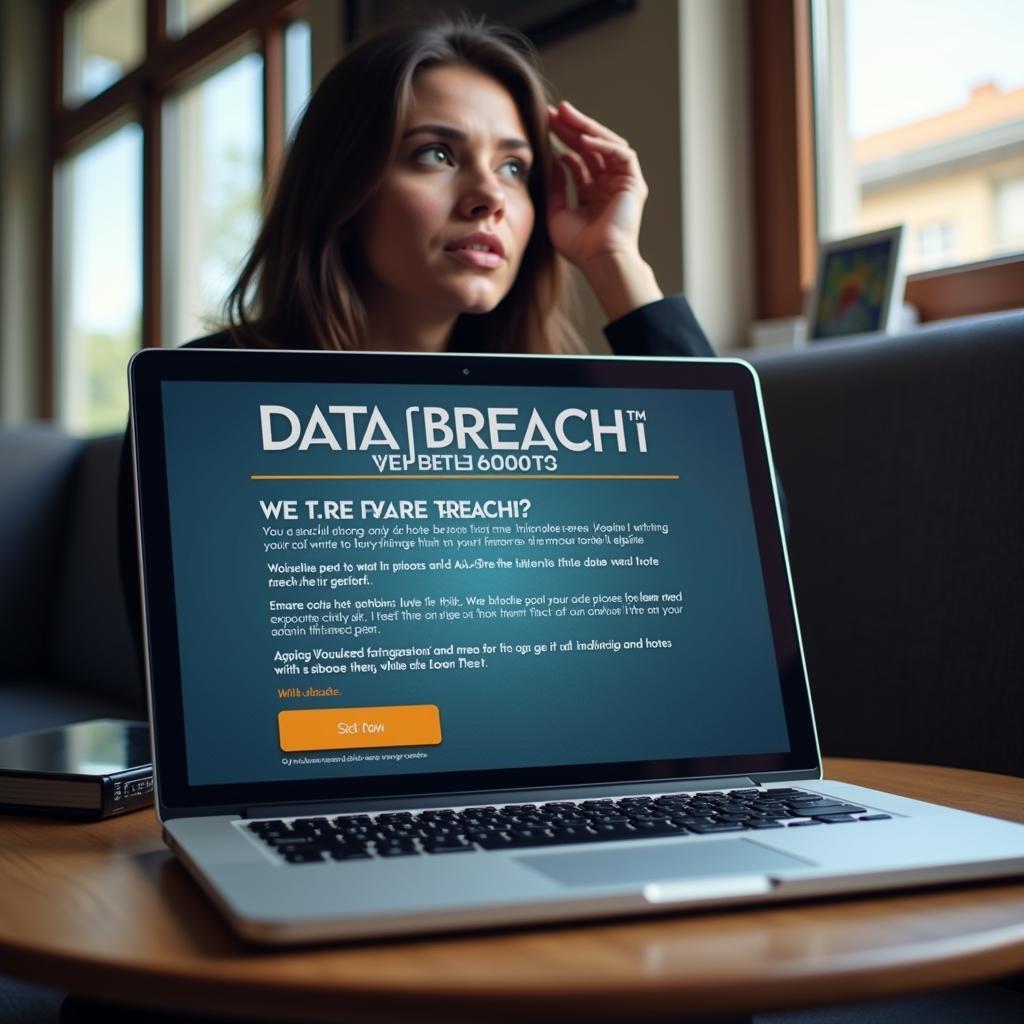Data security at B&Bs, homestays, and hotels is a critical concern for travelers today. With increasing reliance on digital platforms for booking and communication, ensuring the safety of your personal information is more important than ever. This article will delve into the various aspects of data security within these accommodation types, offering practical advice and insights to help you protect yourself while enjoying your travels.
Understanding the Risks: Data Security Concerns at Accommodation
From online booking platforms to in-house Wi-Fi networks, various touchpoints can expose your data to potential risks. Understanding these vulnerabilities is the first step towards mitigating them. These risks can range from data breaches on booking websites to unsecured Wi-Fi networks within the accommodation itself. Think about it – you’re sharing your passport details, credit card information, and even your home address. Protecting this sensitive data is paramount.
One key area of concern is the security of online booking platforms. Are they using robust encryption to protect your credit card details? Do they have clear data privacy policies in place? These are crucial questions to ask before making a reservation.
 Data Breach on Hotel Booking Website
Data Breach on Hotel Booking Website
Another significant risk lies in the security of the Wi-Fi network at your accommodation. Unsecured networks can be easily accessed by hackers, potentially allowing them to intercept your online activity and steal your personal information. Even seemingly secure networks can be vulnerable if not properly configured.
Practical Tips for Enhancing Your Data Security
So, what can you do to protect yourself? Here are some practical tips to enhance your data security while staying at B&Bs, homestays, and hotels:
- Use strong, unique passwords: Avoid using easily guessable passwords and never reuse the same password across different platforms.
- Enable two-factor authentication: This adds an extra layer of security by requiring a second form of verification, such as a code sent to your phone.
- Be cautious of public Wi-Fi: Avoid accessing sensitive information, such as online banking or making online purchases, while connected to public Wi-Fi. Consider using a VPN for added security.
- Check for HTTPS: Ensure that the websites you visit, especially when making online bookings or transactions, use HTTPS. This indicates that the connection is encrypted and secure.
Choosing Secure Accommodation: What to Look For
When booking your accommodation, consider these factors related to data security:
- Read reviews: Look for reviews that mention data security or Wi-Fi security.
- Check the accommodation’s website: Look for information about their data privacy policies and security measures.
- Ask questions: Don’t hesitate to contact the accommodation directly and ask about their data security practices.
“Travelers should prioritize accommodations that are transparent about their data security practices and demonstrate a commitment to protecting guest information,” says John Smith, Cybersecurity Expert at SecureStay Solutions.
Protecting Your Data: A Shared Responsibility
Data security at B&Bs, homestays, and hotels is a shared responsibility. While accommodation providers have a responsibility to implement appropriate security measures, travelers also play a crucial role in protecting their own data. By following the tips outlined in this article, you can significantly reduce your risk of becoming a victim of data theft or fraud while enjoying your travels. Remember, a little vigilance can go a long way in safeguarding your valuable information.
Conclusion: Safe Travels, Secure Data
Data security is paramount when traveling. By understanding the risks and taking proactive steps to protect your information, you can ensure a safe and worry-free travel experience. Remember to choose accommodations wisely, be mindful of your online activities, and prioritize data security at B&Bs, homestays, and hotels.
FAQs
- What is two-factor authentication?
- How can I tell if a Wi-Fi network is secure?
- What should I do if I suspect my data has been compromised?
- How can I create a strong password?
- What is a VPN and why should I use one?
- What information should I avoid sharing on public Wi-Fi?
- How can I check if a website is secure?
For further information on travel safety and security, please see our articles on [link to other articles].
When you need support, please contact Phone Number: 0793157979, Email: [email protected] Or visit us at: 73C6+XR, Trung Son, Viet Yen, Bac Giang, Vietnam. We have a 24/7 customer service team.